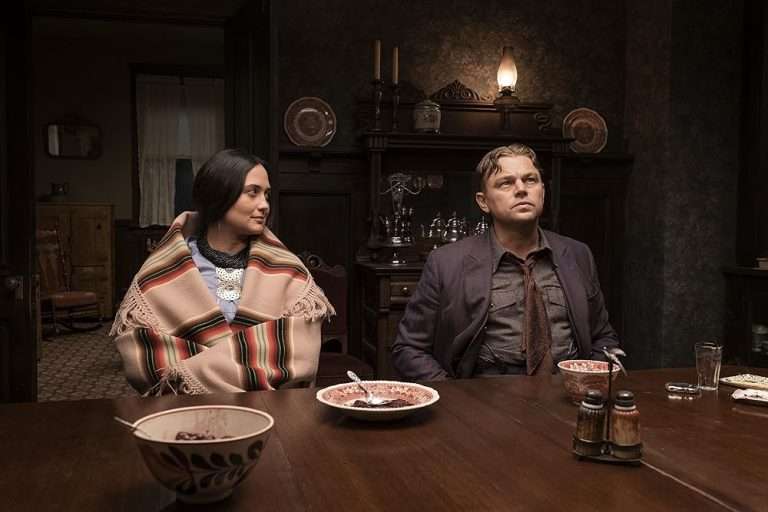‘I Care a Lot’ (Netflix, 2021) strives to wink at the audience without letting its characters know. What it ends up constructing is a meta-narrative that suffocates under the constraints of its own genre tropes.
The film’s opening monologue shows us how the protagonist believes the world works. “There’s two types of people in this world,” Rosamund Pike’s character says with a characteristic sense of righteousness. “The people who take… and those getting took. Predators and prey. Lions and lambs. My name is Marla Grayson, and I’m not a lamb. I am a ******* lioness.”
The director, J Blakeson, portrays Marla as someone with strong work ethics but no moral ones. She is a con woman who manoeuvers the legal system in the role of a legal guardian, taking over the properties of the elderly and selling them off for a profit while leaving the original owners to languish in assisted living facilities.
The film’s first act is grounded in realism and portrays how she works with her assistant-cum-lover Fran to determine whether their latest target – Jennifer Peterson (Ellen Burstyn), a single retiree with no family – is worth the pursuit. They evaluate her to be an easy target.
We are then taken through the motions along with Jennifer, the latest victim of Marla’s systemic corruption, as she realizes there is no escape from the blockade placed in front of her – both willingly and unwillingly – by the system which is supposed to take care of her. In all senses of the word, she is trapped.
Related Read To ‘I Care A Lot’: 25 Greatest Feminist Movies You Should Watch
But this is where the story takes a turn, as we realize Jennifer is not the ordinary lady she poses to be. She’s the mother of a powerful mob boss – Roman Lunyov (Peter Dinklage) – who has an equal affinity for both his mother and his doughnuts. These oxymoronic character traits define the main antagonist of the film. His height is in complete contrast to his stature as a feared criminal. His employees are strongmen who are outwitted easily. And even when he kidnaps Marla and leaves her to die, the director never really lets us believe he’s the one actually in control.

Dinklage says more with his silent introspections and facial movements than with his actual words, which remain measured. He takes himself quite seriously, but because of the ingenuity of the script, he’s also the funniest man to follow in the movie. At the same time, Blakeson intentionally does not allow him to be endeared to us with the help of a scene early on in the movie where we realize he earns his profits from human trafficking.
The film strives to be a satire of feminist ideals preached by immoral women. Marla faces constant misogyny from people she has wronged. While this does not excuse the misogyny itself, it does tell us a lot about the protagonist’s psyche. She believes men threaten her with empty words and inflated egos which never amount to anything or prove her wrong because of their inelegance, even though the way she conducts herself is objectively more dangerous to society. This mentality almost proves to be her undoing when she rejects giving in to the threats from Lunyov’s lawyer.
The lawyer himself presents an opportunity for Blakeson to satirize the other side of the aisle. The high-priced legal support of Lunyov seems to be quite amused by the concept of a woman being a doctor, referring to Dr Amos (Marla’s accomplice) as ‘her-doctor’ in what is arguably the best scene in the film.
‘I Care a Lot’ defies the conventional wisdom of having at least one good guy (or her-guy) to side with in its story. Every single character in the film – whether a lamb or a lion – comes across as an unpleasant individual at best, and a dangerous one at worst.
Also Read: Netflix In March 2021: Here’s Everything Coming To Netflix This Month
When no character has a proper arc in a story, the direction and the plot take precedence in the filmmaker’s attempts at captivating the viewer. The former is done with expertise here, blending elegant cinematography with captivating set pieces and underrated editing. It almost succeeds in taking our mind off the fact that the plot itself is confused about what it wants to be, and how it paces itself. But the slapstick nature of its many scenes is all the more jarring because the audience cannot always understand the tonal shifts Blakeson presents in his work.
In the end, Marla gets her comeuppance in a way most people wouldn’t have seen coming. The film explains character motivations briefly but with perfection – even for its tertiary characters – which means the ending comes across as a satisfying plot twist that ties a neat bow on an innovative final act of the film.
This film is a confused vision of an excellent director, managing to be an entertaining watch nonetheless. The film almost makes up for its lack of a soul with an undersold sense of humor and beautiful visuals, but it falls short of being ground-breaking. ‘I Care a Lot’ thus serves as a vital lesson for up-and-coming filmmakers – you can only make good cinema if you make the audience care.
Author: Abhijato Sensarma
Abhijato Sensarma is an eighteen-year-old student who lives in Kolkata, India and can be reached on Twitter @ob_jato. He’s on the verge of stepping into the real world, which does not prevent him from writing about fictional ones whenever he can. His works have been published in The Guardian, The Wire, ESPNCricinfo, The Telegraph in Schools and The Statesman’s Voices. He hopes to make a film someday – and understand poetry along the way too.



![Bumblebee [2018] Review: When a Franchise Transforms](https://79468c92.delivery.rocketcdn.me/wp-content/uploads/2018/12/Bumblebee_HOF-768x410.jpg)

![Namdev Bhau: In Search of Silence [2018] Review – So Near and Yet So Far](https://79468c92.delivery.rocketcdn.me/wp-content/uploads/2018/12/106602-qmtvuunlfl-1543223751-768x403.jpg)

![Melancholic [2019]: ‘Japan Cuts’ Review – Soaked in Ennui](https://79468c92.delivery.rocketcdn.me/wp-content/uploads/2019/07/40570045793_6cfe3222b9_o-696x391.jpg)